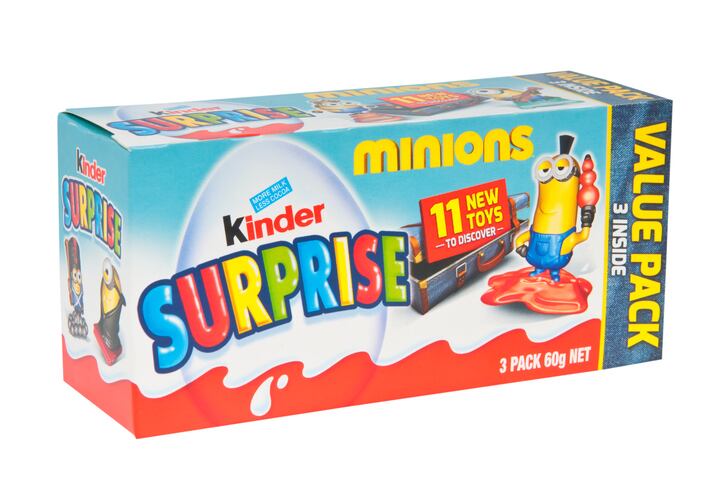The trade association FNLI, which represents the interests of Dutch food and beverage manufacturers which covers 450 businesses, announced yesterday it would restrict the use of licenced media characters aimed at children up to 13 years old.
This means licensed characters, such as Disney’s Nemo, would be affected but not characters that are particular to a brand, such as Tony the Tiger on Kellogg’s Frosties or Coco the Monkey on Coco Pops.
This will apply to products’ physical packaging and point-of-sale materials and not radio, television, print or social media.
However as the packaging is affected, the FNLI said it first needed to carry out an assessment to ensure this would not violate the EU’s internal market, which would be done “as soon as possible”.
With rising rates of childhood obesity across Europe there have been increasing calls for policymakers and industry to take actions, through advertising

restrictions, taxation, mandatory product reformulation.
But in a statement on its site, the FNLI seemed to suggest it did not expect this measure to actually be have an impact on obesity rates. “The FNLI does not expect that these continued restrictions on advertising will reduce the prevalence of overweight and obesity, as is there has also not been any proven effects of restricting advertising towards children, which has already been implement for the last 10 years,” it said.
Philip den Ouden, director general of the FNLI told FoodNavigator it was about being part of the wider debate.
“It’s essential to fight overweight and obesity with the right means, the right tools. The focus should be on [measures] that do work but there’s also an enormous social discussion at the minute so we’re taking this next step in response to that social and political pressure, and with a call to action to all other parties to focus on what works to reduce obesity.”
These other parties include the Dutch Heart Association, the Dutch Diabetes Association and local sports groups, he said.
The news was welcomed by the country’s health minister, Martin van Rijn, and by the consumer group Consumentenbond.
"We consider this announcement as a breakthrough as these characters are one of the most effective ways to influence children’s preferences," said Consumentenbond, although it added: "Besides advertising via packaging, we still see a lot of other loopholes in the advertising code. Companies can, for example, make advertisements aimed at children if they cooperate with a ‘recognised authority’. As there is no definition of ‘recognised authority’, we have seen many marketing campaigns for unhealthy food stuffs in cooperation with sports organisations."

'Weak' nutrient profiles?
Food industry watchdog and campaign group Foodwatch said the announcement was a step forward but said the nutrient profiles being used are “so weak” that cartoon characters would only be removed from the worst junk food.
Campaigner for children marketing and misleading claims Sjoerd van de Wouw said:"Even some chips, ice cream and sugary sodas are still seen as 'healthy' in this industry-made nutrient profiling [and] so can still be marketed to children aged seven to 13 years.
"At Foodwatch we don't want self-regulation. Let's be real, industry has other priorities than public health - making profit - and
[...] should not be given the responsibility for public health issues. Government, together with parents, are responsible and should decide on policy for children's health."
The nutrient profiles are broadly aligned with those of the EU Pledge.
Incentive to comply

The lack of punitive measures for non-complying manufacturers and retailers also means that there could be a lack of incentive to comply.
“A negative outcome in a complaint procedure has no formally negative consequences,” said van de Wouw.
The past few years has seen 36 retailers and brand deemed to be in breach of the Dutch advertising code for child marketing.
“But because the advertisements were already printed a few months [prior] and taken offline directly after the complaint and the specific papers were out of stock, the consequences for the non-compliant retailers and brands were minimal, only bad publicity.”
However, Den Ouden said, with a 98% compliance rate for judgements made by the Dutch advertising regulator, “it’s a credible, effective and efficient system even if there are no sanctions.”
The FNLI is now working on a formal proposal to amend the food and drink advertising code to include the new restriction. This was originally drawn up by the Dutch industry and all amendments made to it since have come form industry.
It has earmarked the first half of 2017 to get this amendment formalised.
The FNLI announcement comes a day after the UK's Committee of Advertising Practice (CAP) increased restrictions on marketing junk food to children to cover non-broadcast media, including print, cinema and online social media.
UK industry group, the Food and Drink Federation, supported the measure.
